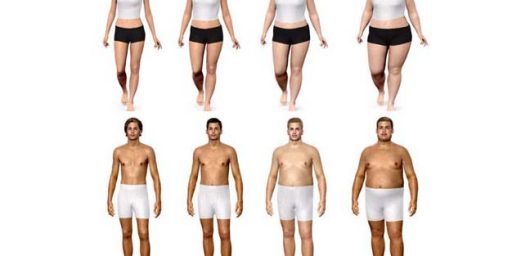Cold Virus May Be a Factor in Obesity
Researchers at Louisiana State University have determined that a common cold virus might help to spur obesity by triggering the growth of fat cells.
The adenovirus-36 (Ad 36) has already been implicated as the cause of weight gain in animals, but with this study researchers showed for the first time that it can also cause humans to pile on the pounds.
[…]
“We’re not saying that a virus is the only cause of obesity, but this study provides stronger evidence that some obesity cases may involve viral infections,” said Magdalena Pasarica, an obesity researcher at the Pennington Biomedical Research Center at Louisiana State University in Baton Rouge.
A previous study found that almost a third of obese people are infected with the virus compared to around one in 10 of their leaner counterparts.
In laboratory experiments, the Louisana State University researchers found that the bug appeared to promote the formation of fat cells from stem cells.
The team took adult stem cells from fatty tissue left over from patients who had undergone liposuction, a procedure to remove fat, and exposed some of it to Ad-36, leaving the rest untreated.
After a week of growth in tissue culture, most of the virus-infected adult stem cells developed into fat cells, whereas the untreated cells did not.
Obviously, this isn’t dispositive, and there are some unanswered questions as to how long the virus remains in the system and how permanent the effects are. Still, if the fat cell growth does remain permanent or semi-permanent, that could go a long way to explaining why some people can work very hard on both diet and exercise and still have a difficult time struggling to lose weight. If the cold virus is a factor, then its effects might be able to be mitigated, allowing those people to lose weight through the normal course of diet and exercise.
Of course, as the article points out, earlier studies have found that only about 1/3 of obese people are infected with this virus, so any cure or vaccine wouldn’t exactly be a miracle diet drug. It will be interesting to see what further studies reveal about this virus and its mechanisms.




